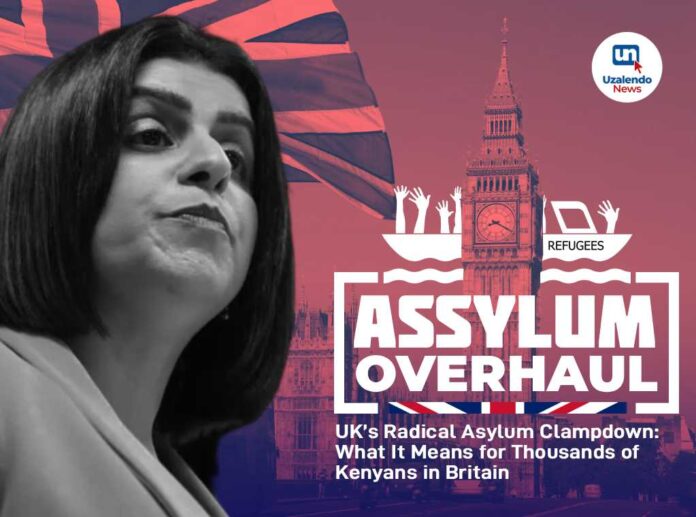Keir Starmer’s Labour government has announced the most sweeping restriction of refugee rights in modern British history, shifting refugee status from indefinite to temporary. The regime is plotting to extend the wait for permanent settlement from five to twenty years and pledging rapid removal of anyone who arrives irregularly or loses an asylum claim.
Home Secretary Shabana Mahmood also wants courts to adopt a narrower reading of the European Convention on Human Rights, particularly Article 8 on family life and Article 3 on protection from degrading treatment.
The United Kingdom’s controversial Rwanda deportation scheme, which sought to send asylum seekers arriving irregularly to Rwanda for processing, was declared unlawful by the UK Supreme Court in November 2023.
The court ruled that Rwanda could not be considered a safe third country, citing credible risks that refugees might be wrongly returned to their countries of origin and face persecution or mistreatment.
The judgment dealt a severe blow to then prime minister Rishi Sunak’s flagship immigration policy, which he had championed as a deterrent to small-boat crossings.
Despite the ruling, the Conservative government at the time vowed to press ahead, exploring legislative workarounds and a new treaty with Kigali. Those efforts collapsed after Labour’s landslide victory in July 2024.
In October 2024, the incoming administration formally scrapped the scheme, confirming that no flights would ever take off and writing off more than £700m in sunk costs.
Officials insisted, however, that the decision did not signal a softening on border control, pledging instead to pursue tougher domestic measures to curb illegal migration and restore public confidence in the asylum system.
Mahmood’s new plan, inspired by Denmark, focuses on tightening asylum rules and making it easier to remove migrants, rather than deporting them to a third country like Rwanda.
This new policy aims to deter unauthorized immigration, make the UK less attractive to asylum seekers, and speed up the removal of those who don’t qualify for asylum
How Will This Affect Kenyans?

For the roughly 220,000 Kenyan-born residents in the United Kingdom (Office for National Statistics, 2023), most of whom hold work, study or family visas, day-to-day life is unchanged. Yet the changes strike hard at two vulnerable groups.
First, an estimated 4,000 to 6,000 Kenyans who either overstayed visas or arrived clandestinely now face accelerated deportation under the new “far more hard-headed” removal policy.
Second, several hundred Kenyans currently in the asylum system, many fleeing post-2022 election violence or LGBT persecution, will see any grant of refugee status become time-limited and revocable.
Official figures show 1,874 Kenyans claimed asylum in Britain between 2019 and 2024, with a grant rate hovering around 42 per cent, higher than the overall average because Kenya is not deemed a “safe country” of origin. Under the new rules, even successful claimants will live under the cloud of periodic review and possible return after five years.
More alarming for Nairobi is the diplomatic fallout. Britain has already threatened visa sanctions against Angola, Namibia and the Democratic Republic of Congo for refusing deported nationals.
Senior Kenyan foreign affairs officials privately confirm that only a sharp increase in repatriation flights over the past quarter kept Kenya off the same list. In the year to June 2025, 1,312 failed Kenyan asylum seekers were removed, up 87 per cent on the previous twelve months.

The Kenyan diaspora remains one of Britain’s most economically vital. In 2024 alone, Kenyans in the UK remitted £620 million through formal channels, according to Central Bank of Kenya data, supporting everything from school fees to hospital bills back home.
Community leaders warn that inflammatory rhetoric about “abuse of the system” risks tainting all Kenyan migrants, including the thousands of nurses, care workers and seasonal agricultural staff recruited under post-Brexit schemes.
As Britain lurches rightward to neutralise Nigel Farage’s Reform UK, Kenya finds itself walking a familiar tightrope: quietly cooperating on returns to protect the wider migration corridor while publicly defending the rights of its citizens abroad. For now, the corridor holds, but the new British posture has narrowed the margin for error to almost nothing.



















